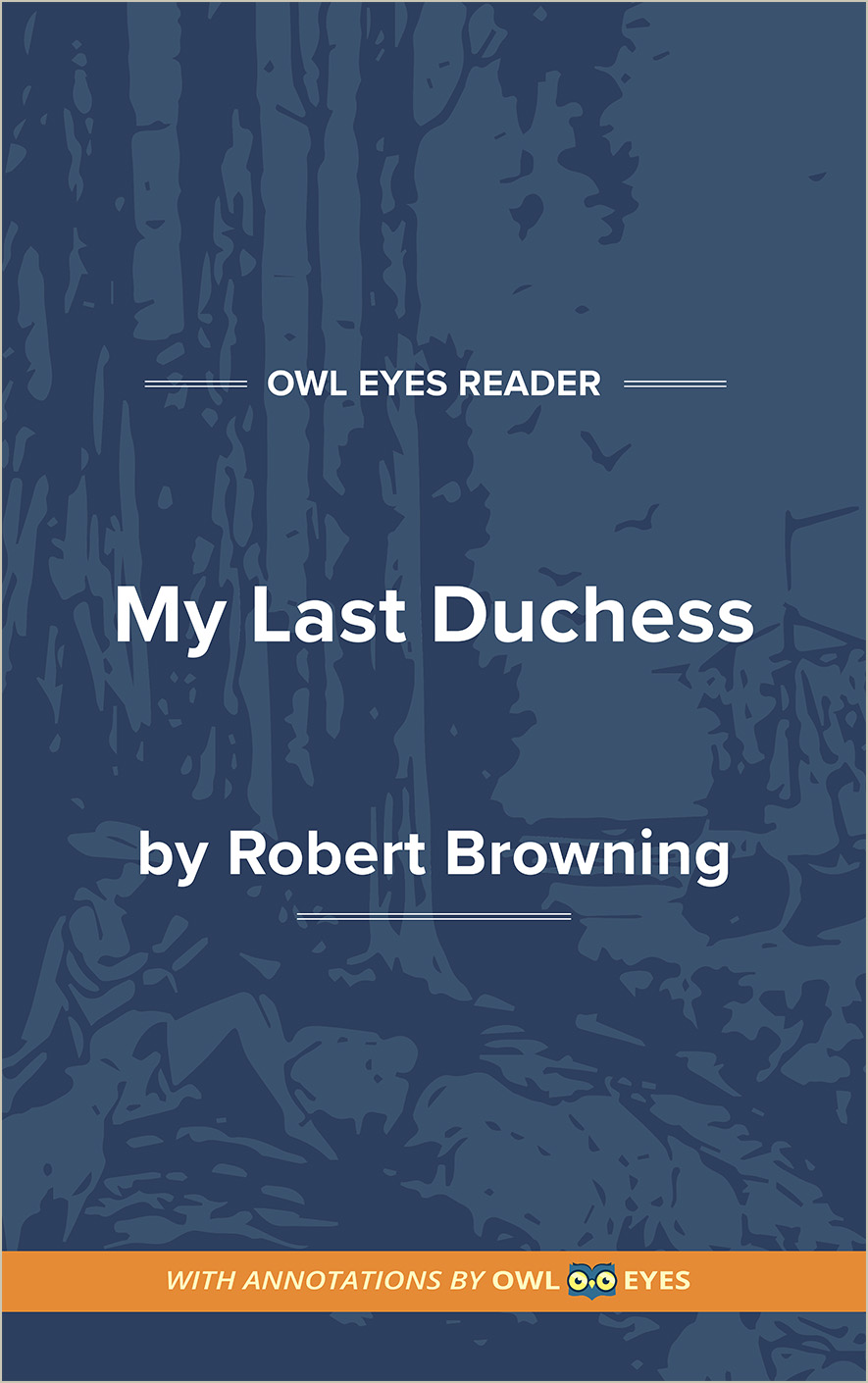Analysis Pages
Themes in My Last Duchess
Absolute Power Over Domestic Life vs. Inconsequential Freedom: The main tension in the story related by the Duke is that his last Duchess does not act exactly the way he wants her to. The Duke wishes to exercise power over all aspects of his estate, including his wife. It is clear that he believes she has overstepped her bounds as a dutiful partner through her lack of appreciation of his distinguished heritage and what he believes to be her boldness around other men. Though there is no indication that the Duchess was ever unfaithful to him, the Duke is unable to let her retain her fairly inconsequential scraps of freedom if it means he cannot fully control her actions.
Jealousy as Gateway to Madness: By the end of the Duke’s monologue, both readers and his implied audience are able to discern the Duke’s damaged mental state. It is heavily implied that the Duke had his Duchess killed out of jealousy for imagined transgressions and her natural sexuality as opposed to any concrete evidence of infidelity. Though the audience is appropriately disturbed, the Duke sees nothing wrong with his actions, implying a deep lack of empathy.
Themes Examples in My Last Duchess:
My Last Duchess
🔒"nine-hundred-years-old name..." See in text (My Last Duchess)

